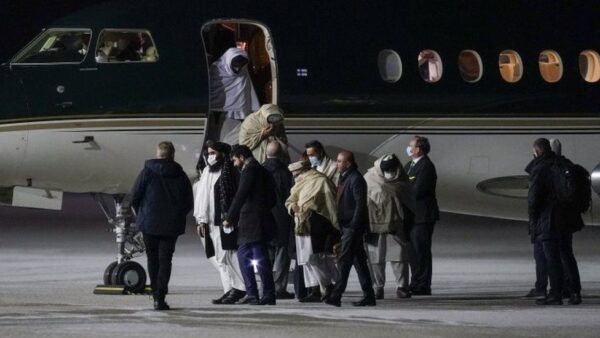
After Oslo talks, what’s next for Afghanistan?
KABUL, Afghanistan / Islamabad, Pakistan – A week after the Taliban and Senior US and European officials held talks in the capital city of Norway, Oslo, the main results seem to be a promise to increase humanitarian aid, with demand related to human rights, with some analysts say talks implies “de facto “towards the Taliban government.
No foreign government officially acknowledged the legitimacy of the Taliban government over Afghanistan, called by the group as an Afghan Islamic Emirate (IEA), although some of the world’s power has been involved with the government at various levels.
The talks in Oslo were the first official journey by acting Afghanistan Foreign Minister Amir Khan Muttaqi and his delegation to Europe since the Afghan Taliban arrested Kabul and took control of Afghanistan in mid-August.
After the talks of January 24, diplomats from the United States and Europe told the Afghan officials of the Taliban that humanitarian assistance would be bound to an increase in human rights situations in the country, which international rights and Afghan activists had deteriorated since then. The Taliban took over.
[Participants] urged the Taliban to do more to stop increasing worrying human rights violations, including arbitrary detention, … forced disappearances, medium crackdown, extraudi murder, torture and ban on women’s education and freedom, and freedom to Traveling a male companion, “said a statement with US-Europe issued after the conversation.
Talks also recognize “urgency in overcoming the humanitarian crisis in Afghanistan and important steps to help relieve the suffering of Afghans throughout the country” said the statement.
On Wednesday, the head of the Nations Antonio Guterres said Afghanistan “hung by threads”, as the economy stopped after the Taliban takeover and after international sanctions, including freezing of more than $ 9 billion in Afghan central bank assets.
He also urges the Taliban “to recognize and protect fundamental human rights distributed by everyone”.
Without hesitation, Oslo talks are a giant achievement for the Afghan Islamic Emirates, “said Shafi Azam, an Foreign Ministry official at the Afghan Taliban government.
“It is a useful opportunity for the Taliban to overcome the majority of European Union members and to hear their concerns and share with their [us] achievements and to talk about challenges and also continue our [our] future plans to Europe,” Azam, who participated In Oslo talks, told Al Jazeera.
Mohsin Amin, a policy analyst and researcher, said talks, among other actions, were “signs of implicit recognition” from the Taliban government.
I thought it was recognized as a de facto government, “he told Al Jazeera.
I think [Oslo talks] can be considered a achievement for Taliban diplomacy. The Taliban wants involvement with the whole world, and such a meeting facilitates such involvement.”
Sulaiman bin Shah, a former Deputy Minister of Industry and Trade in the President of the President he was in order to Ashraf Ghani, agreed that Oslo talks and other forms of involvement “effectively created a situation where the new rules were recognized de-facto.

